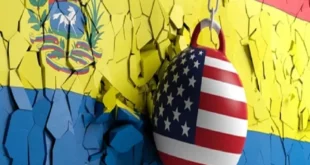In 2012, Hezbollah committed itself to armed conflict in defense of its Syrian ally, Bashar al Assad, against rebels and Islamic State fighters attempting to overthrow the Assad government. With the backing of Iran and Russia, they successfully supported the Syrian Arab Army (SAA) in largely putting down the armed insurgency.
But Hezbollah and Iranian-backed militias fighting on behalf of the Bashar al Assad’s government have suffered heavy losses since late January fighting Sunni militant groups in the Aleppo countryside located in northwestern Syria.
The area has become a strong-hold for jihadist groups like Hay’at Tahrir al Sham, al Qaeda linked militants and various Turkish-backed groups. Many of these groups operate under or are affiliated with the Incite the Believers Operation Room.
In recent weeks, the SAA and its allies have launched an offensive to retake the opposition stronghold in northwestern Syria. They have largely been successful at retaking strategic roads and villages in their advance. However, the cost of retaking areas lost during the Syrian Civil war has come at a price for Hezbollah and its allied militias.

On January 24th, it was announced that a Hezbollah commander, Jaafar al Sadiq, was killed in Syria. Four days later, the death of three Hezbollah fighters were announced: Ammar Darwish, Abbas Yunis and Abbas Taha, all killed fighting in the Aleppo countryside. As the fighting intensified in areas such as al Zahraa, another Hezbollah fighter, Muhib al Nimr was also killed.

Bashar al Assad’s Iranian-backed militias also saw heavy losses by Sunni jihadist groups in the Aleppo countryside. Assad’s auxiliary forces in Aleppo, specifically, the Local Defense Force (LDF), have suffered the brunt of the losses with dozens reportedly killed.
A large amount of those losses occurred Saturday when Hay’at Tahrir al Sham launched a counter-offensive in western Aleppo with three car bombs, APC’s and tanks against pro-Assad forces in the town of al Zahraa.

Ebaa, the media arm of Hay’at Tahrir al Sham, published a video which showed its al-Asa’ib al-Hamra (Red Bands) unit pledging “allegiance to death and jihad” in front of their leader al Jolani before starting their counter-offensive.
#Iran|ian-backed Baqir Brigade leader killed by an ATGM strike during clashes in the #Aleppo countryside on Sunday. #Syria pic.twitter.com/pq6Xbc7cxv
— Joe Truzman (@Jtruzmah) February 3, 2020As fierce clashes occurred Sunday in Aleppo, a technical belonging to the Baqir Brigade was firing at opposition forces. As the truck-mounted ZU-23-2 fired at its target, an anti-tank guided missile fired by opposition forces struck the vehicle which resulted in the death of a Baqir Brigade commander, Juma al Ahmad.
The Baqir Brigade is one of the largest pro-Assad militias in the Aleppo Governorate and is part of the LDF.
The group certainly advertises its affinity and close ties to the IRGC. It has acknowledged receiving training and equipment and declares Supreme Leader Ali Khamenei as one of its “leaders.” The militia’s leaders have previously been photographed with Qods Force commander Qassem Soleimani. The Baqir Brigade has also vowed to fight Iran’s arch-rival Israel, as its operations commander al Hajj Hamza, AKA Abu al Abbas, declared in December 2017 during a visit to the Israeli border in southern Lebanon. “Let Israel know that we are on its borders, and the day will come when we break its borders.”

In another example of losses by the hands of jihadist groups in the Western Aleppo Governorate, an IRGC Qods Force commander, Asghar Pashapour, was killed on Sunday.
Pashapour was a lieutenant of recently assassinated Qods Force chief Qasem Soleimani and was in charge of equipping and training Shia militias in Syria. It is believed that Pashpour was one of the first IRGC members to accompany Soleimani to Syria when the civil war began.
With greater fire power at their behest, including Russian air cover, pro-Assad forces will likely continue to make advances deeper into opposition held territory. That means fighting will continue to be fierce and losses on both sides will rise. The question now is how great of a loss Hezbollah and its Iranian-backed allies are able to sustain before completing their objective of clearing northwest Syria of opposition forces.
 Eurasia Press & News
Eurasia Press & News

